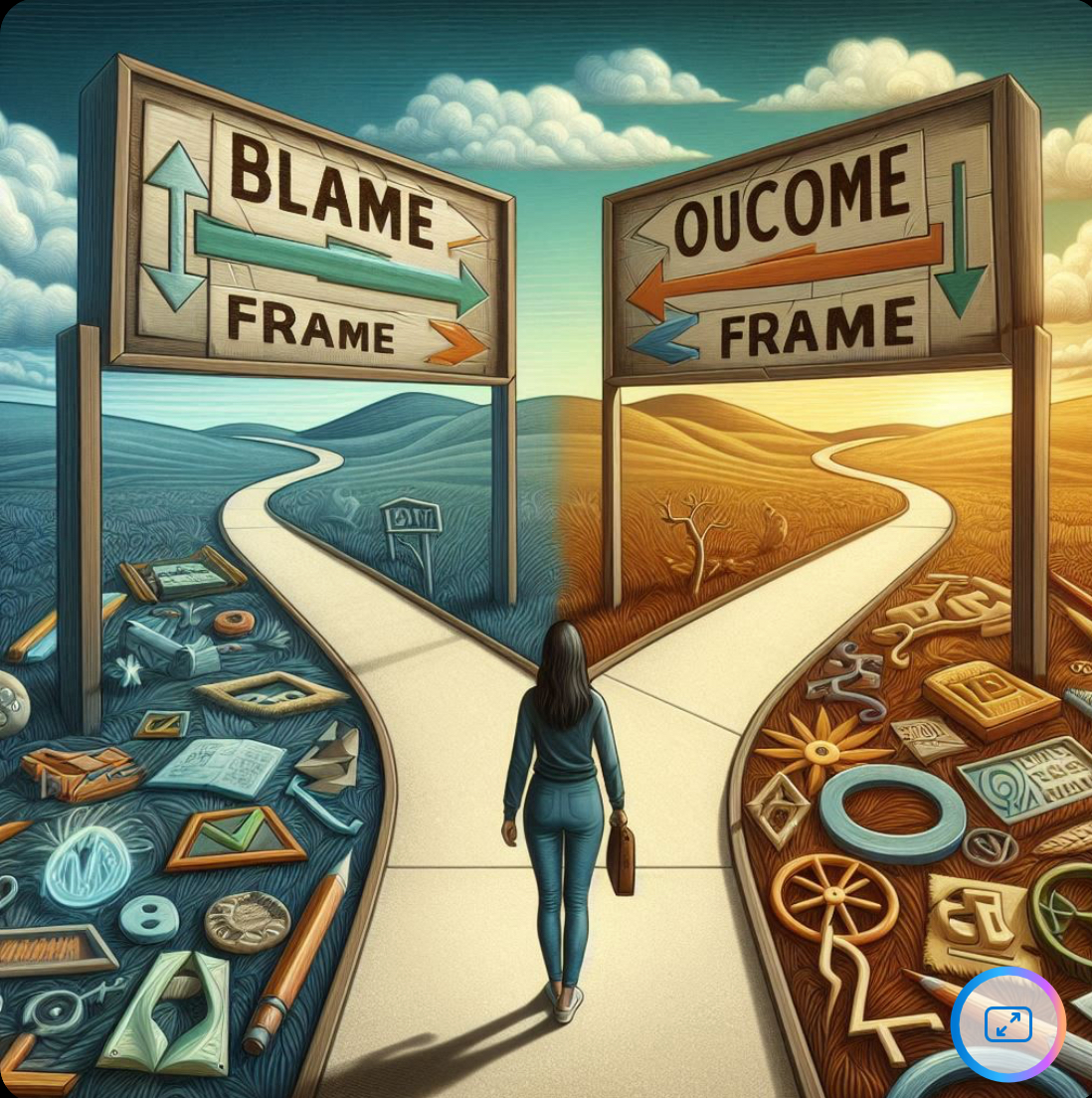Let’s start with a simple exercise and then work up on the postings:
Think of some situation at work or in life that is making you unsatisfied and you want it to change (relationships, physical health, mental health, finances). Ask yourself the following questions:
1. What is wrong?
2. Why am I having this problem?
3. Whose fault is it that I have this problem?
4. What does this problem stop me from doing?
5. How does this problem limit me?
6. What is this problem stopping me from doing?
Now take a pause with a big breath and ask yourself how you felt while answering these questions. You did the Blame Frame.
Let us now try a different set of questions – The Outcome Frame:
1. What do I want? It must be under your control and stated in the positive, as opposed to what you do not want ( https://clintmatheny.cdn-pi.com/25/).
2. When and where do I want it?
3. How will I know that I have it? What will I see, hear, and feel when I get my outcome? Run a movie in your mind’s eye of you achieving your goal.
4. Make sure you think of the downsides of achieving this goal. It is worth it?
5. What other resources do I have to help me get this?
6. What am I going to begin doing now to get what I want?
Again, take a pause and ask yourself how you felt while answering these questions.
Most people feel unhappy and powerless while answering The Blame Frame and feel more resourceful and empowered while answering The Outcome Frame.
The Blame Frame is problem oriented and mostly leads to feeling helpless and bound by limitations and a lack of choice. The focus is on what is wrong.
The Outcome Frame is solution oriented and mostly leads to people feeling capable and resourceful. The focus here is on emerging possibilities.
It is natural to feel distraught when things go wrong, and human tendency is to get into a The Blame Frame. If you want to feel more empowered make a shift in your thinking through which you look at the situation. Looking at situations from an Outcome Frame could make all the difference.
It is also important to remember that this approach does not mean that the problem disappears or gets solved automatically. However, it does make one more equipped to manage it.

